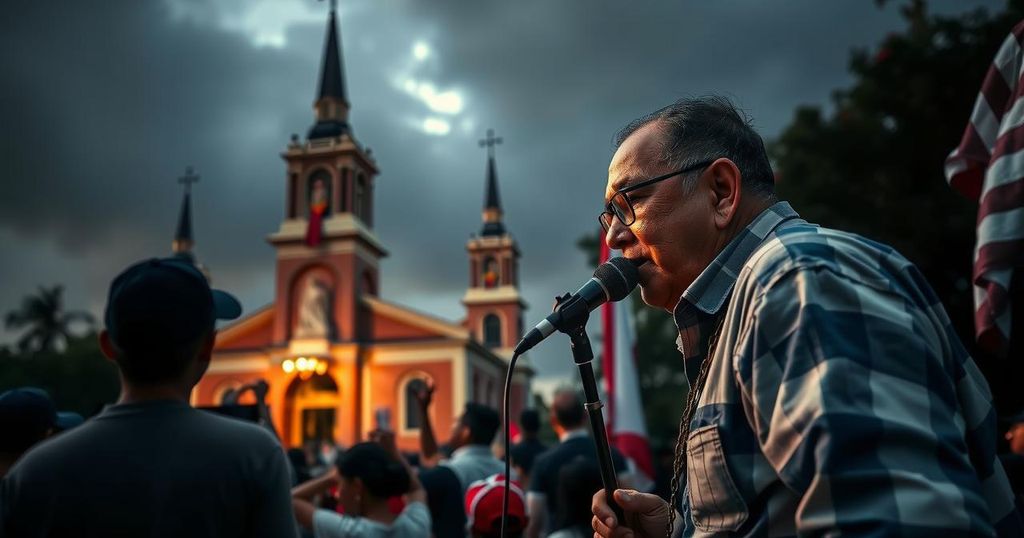Nicaragua’s government has intensified its crackdown on religious groups by closing down non-profits, including several Catholic institutions, and enforcing new tax regulations that critics claim aim to financially weaken the Church. The regime’s actions reflect a broader strategy of suppressing dissent and consolidating power.
The Nicaraguan government, led by President Daniel Ortega and Vice President Rosario Murillo, continues to intensify its assault on religious institutions, particularly targeting the Catholic Church. Recently, they issued a decree that mandated the closure of 1,500 civic organizations, particularly religious nonprofits, claiming a lack of financial transparency. Any property associated with these organizations will now be seized by the government. This escalation occurs within a political environment where churches have become key supporters of the opposition, thus facing heightened oppression. Among the organizations affected are various Christian entities and several Catholic institutions, including the Diocese of Granada’s Caritas and the Madre del Divino Pastor congregation. Their educational establishments have already seen administrative changes imposed by the Ministry of Education, despite the prior absence of communication from the government. Moreover, this marks a historic closure of NGOs in Nicaragua, with over 3,600 already affected since 2018. The government has also mandated all civic institutions to form partnerships with state agencies to operate legally. In addition, recent modifications to tax legislation have revoked tax exemptions for religious organizations, establishing an obligation for them to declare their income and pay taxes, potentially as high as 30 percent. Critics contend that these measures are primarily aimed at financially crippling religious entities. Father José María Tojeira, a Jesuit spokesperson, stated, “It’s not so much a matter of finance… but rather about the Sandinista regime trying to weaken the churches.” Eliseo Núñez, a Nicaraguan political analyst, further underscores the alarming nature of this governmental scrutiny, suggesting that the regime’s efforts represent an overarching strategy to extinguish dissenting voices and impose an unchecked dictatorship. Both he and Tojeira have asserted that the Sandinista administration is executing a calculated plan to suffocate religious institutions critically. Recent developments have seen additional priests fleeing to the Vatican, following the regime’s detention of church leaders. This prompted Pope Francis to express his concerns for the people of Nicaragua, urging them to retain hope and faith amid these tribulations, stating, “May the Madonna accompany the beloved people of Nicaragua.”
The Nicaraguan government, under the leadership of Daniel Ortega, has taken aggressive actions against various civil society organizations, significantly impacting the Catholic Church and its affiliated institutions. The government’s narrative asserts that these organizations have not adhered to financial reporting requirements, serving as a pretext for their closure. In a broader context, churches in Nicaragua have historically played a vital role in opposing the Ortega government, which has increasingly viewed them as adversarial forces amidst rising dissent against its authoritarian policies.
In conclusion, the aggressive measures taken by the Nicaraguan government against religious institutions reveal a strategic effort to diminish the power of the Catholic Church as a source of opposition. With the closure of numerous nonprofits and the new tax regime targeting religious entities, Ortega’s government appears committed to enforcing a lack of pluralism in social discourse. The exodus of clergy and pleas from Pope Francis highlight the urgency of the situation faced by Nicaraguan society as it grapples with escalating state oppression.
Original Source: cruxnow.com






